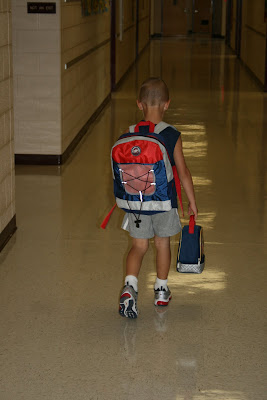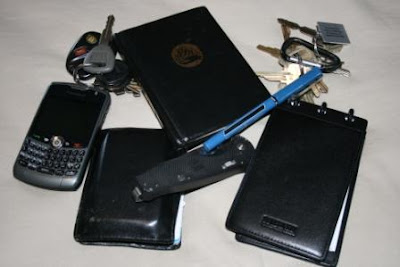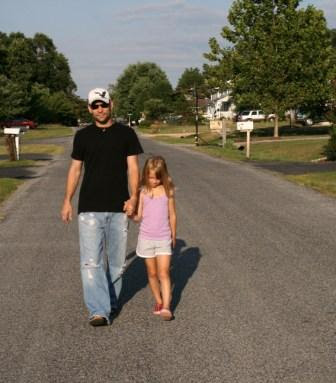The Faith of a Child (by Billy Coffey)

For those of you visiting here from What I Learned Today, welcome. I typically don’t introduce Billy’s guest posts because most of you already know Billy’s writing and it needs no introduction from the likes of me. Those of you who have been reading my blog for awhile know that I have done a few posts about the prosperity gospel. It is one of the few things that makes my blood boil and puts me into full ranting mode pretty quickly. But I have yet to put it into perspective as well as Billy does here:
The television is largely ignored around our house for most of the day, but like all good rules it is relaxed after dinner. By then a day’s worth of school and play have left my children with as much energy as a bowl of Jell-O. Sitting on the couch and being entertained by Phineas and Ferb is all they can handle.
My daughter is generally Holder Of The Remote when I’m not around, and as my own energy level was Jell-O like yesterday evening, I wasn’t around. I had instead camped out in the rocking chair on the front porch, watching the mountains rather than the TV.
I rocked as the cool September breeze blew through the open living room window, letting in the fresh air and letting escape the sounds of my daughter’s channel changing.
News: “Unemployment continues to rise across the Commonwealth…”
A preacher on the Christian channel: “…faith can heal you of your greatest pains…”
ESPN: “…Red Sox continue their collapse…”
And finally Spongebob: “I’m so cold, I can use my nose drippings as chopsticks.”
Which is where I thought she would stay. My daughter loved Spongebob.
But then it was back to the preacher: “…God loves His children and wants to prosper them…”
I kept rocking, gazing out over the porch to the mountains beyond. A slight smile crossed my face, and why wouldn’t it? My daughter had just passed up Spongebob to learn something about God.
“…He doesn’t want anyone to be sick! Disease is Satan’s doing…!”
Still, it seemed a bit odd. A bit over the top. A bit…
“You’re not healed because you don’t believe!!”
“Dang it!” I said, jumping from the rocking chair and bursting through the door as calmly as possible but not quite. I sat beside her and palmed the remote, changing the channel back to Spongebob with as much nonchalance as I could.
“How ya doin’, sweets?” I asked.
Nothing.
“Wanna watch some Spongebob?”
(nod).
“You okay?”
(nod).
But she wasn’t. I knew that. And I also knew it was too late. The damage had been done.
At bedtime when I went to tuck my daughter in for the night, I could see her tears from the doorway.
“What’s faith?” she asked me.
“Faith,” I said, sitting down beside her, “is believing that God can do whatever He wants.”
“Do you have a lot of faith?”
I’d been father long enough to know that sometimes parents must lie to their children. But I never made it a practice to do so when it comes to matters of faith, so I said, “Sometimes I do. Other times I don’t.”
She looked at me, crying. “The preacher man said I have diabetes because I don’t have faith.”
“That’s not what he said,” I answered.
“He said if I had enough faith, God would take my sugar away.”
I didn’t answer that time. Because again, I couldn’t lie—that’s pretty much what the preacher man had said.
I sat by my daughter’s bed for a long while that night, holding her hand and stroking her hair until the tears left and sleep finally came.
As I gazed down to her I wasn’t thinking about how special she was or how she struggled with her disease. No, I was thinking about how much I would’ve liked that preacher to be there to hear my daughter doubt her faith. I wanted him to see the tears he caused her to shed. And then I would’ve taken him out back and shown him what happens to adults who hurt my little girl.
The whole prosperity gospel movement is still going strong, and there are no signs that it will slow anytime soon. Check the bestseller lists. Turn on your television. They’re everywhere, standing in front of thousands of people in their thousand-dollar suits and pretty smiles, prophesying that God is just chomping at the bit to make you as rich and successful and healthy as they are.
I don’t normally rant, and I never judge. But as I sat there looking down at my daughter, I knew without a doubt that there was a special place in hell reserved for people who manage to contort God’s word to equate faith with wellness and piety with affluence.
I can understand their appeal, I really can. A God who wanted nothing more than to heap material blessings on anyone who paid enough attention to Him makes religion seem a little more palatable. A little more…human. And their theology is mixed with just enough truth to make it seem right.
But if you think it is, if you think that’s how God operates, then I’ll invite you to spend a day with my daughter.
Maybe then you’ll see that God isn’t after our comfort or our health as much as our faith and our trust.
To read more from Billy Coffey, visit him at What I Learned Today and follow him on the twitter at @billycoffey.




















